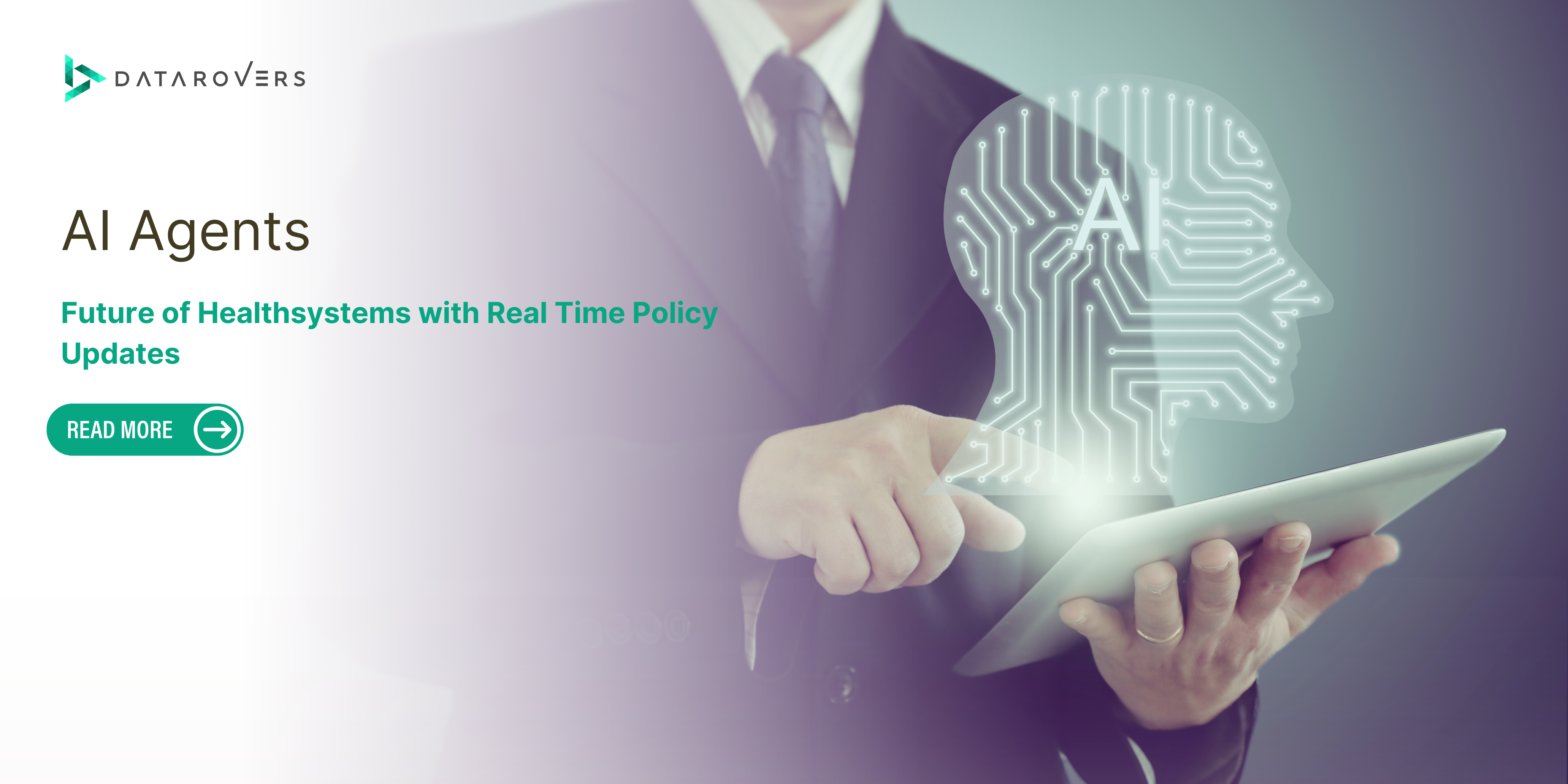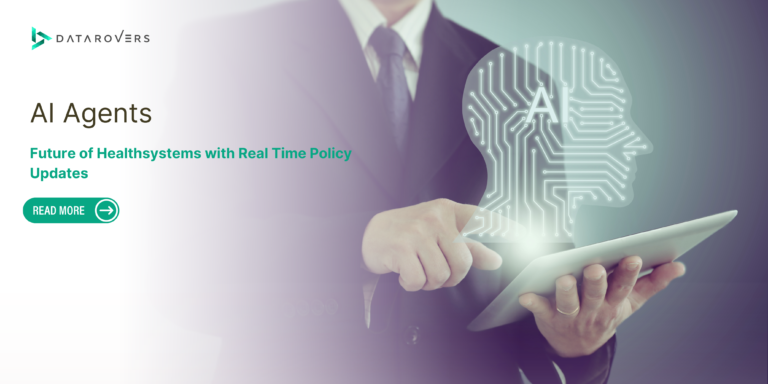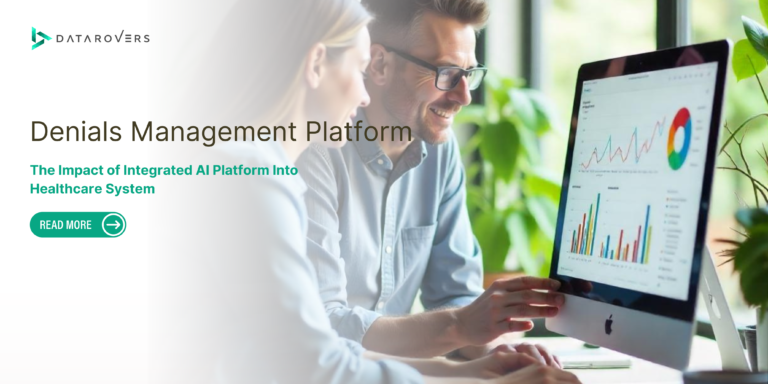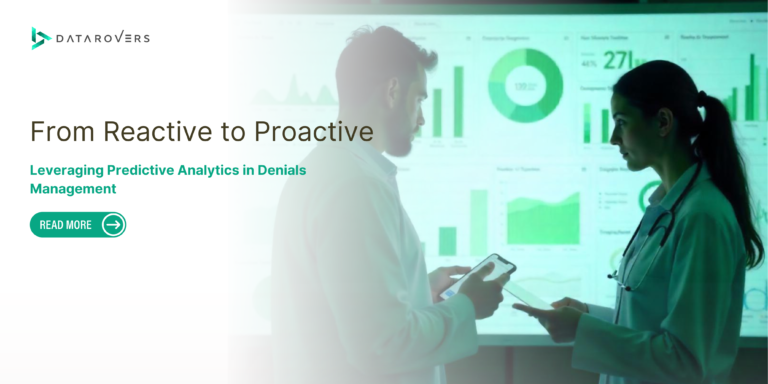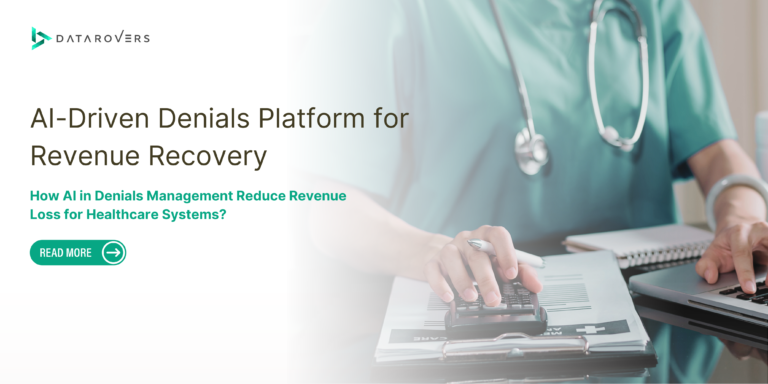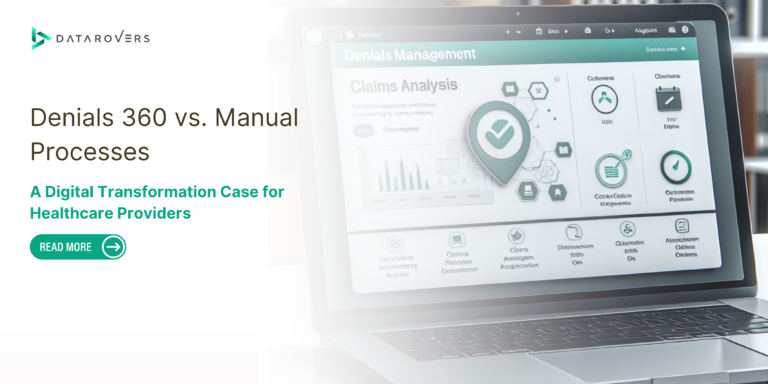Introduction
The time has passed when AI was a mere concept, now it is taking the world by storm. In 2023, the global generative AI market size was reported at USD 17.65 billion. However, it accounted for USD 25.86 billion in 2024 and is expected to reach around USD 803.90 billion by 2033, Precedence Research Reported.
AI has expanded the need for modernized workflow which includes automation and remote monitoring across industries. With the advancements, new applications are emerging, and one of them is Gen AI Agent. It helps many industries to streamline their mundane tasks. It saves cost and eliminates resource and labour-intensive work. It is best to free up administration from burden, so they can focus on their goals by having a buffer time. One such implementation is in the healthcare industry for policy management. Developers have created AI copilots for policy management in healthcare that help professionals retrieve payor guidelines in a minute.
This blog delineates what is Gen AI Agent is, how it works for managing healthcare policies, real-life examples of a policy copilot and how it can be used to assist with healthcare policies.
What is an AI Agent?
You can think of an AI Agent as an AI-powered virtual assistant. It uses data and computation to complete your tasks. It can help many industries as a powerful tool to automate repetitive and complex tasks. In addition, it can provide real-time insights and can support decision-making. Moreover, it is a tool that works alongside humans and it is designed to enhance productivity across many industries. For example, customer support can help solve rapid queries of customers by providing them with relevant answers or resources which as a result enhances customer satisfaction. Another example is healthcare, AI copilots can streamline processes and improve efficiency in healthcare by tackling claim denials and policy management for healthcare providers which helps them save time and focus on patient care instead of getting frustrated by keeping an eye on policy updates.
How an AI Agent Helps in Managing Healthcare Policies?
Generative AI is not merely used for text generation and image generation. It has emerged with its application and its integration in industries for several use cases. For example: Gen AI implementation can streamline the management of healthcare policies. It works by automating and optimizing key administrative tasks. The major drawback of healthcare organizations is that they find it difficult to handle large volumes of complex, time-consuming processes, which can lead to inefficiencies and burnout among staff. However, an AI Agent can alleviate these pressures. It can complete repetitive administrative duties and allow healthcare professionals to focus more on patient care. Here are some of the benefits it offers:
Automating Administrative Tasks
An AI Agent in healthcare policy management can handle insurance verification, medical coding, prior authorizations, and appointment scheduling. It can automate these tasks and reduces the risk of human error. This speeds up processes and ensures compliance with regulations. For instance, insurance verification can take hours but AI makes it streamlined for healthcare providers by making it quickly accessible: a patient’s coverage and proceed with treatment.
Enhancing Efficiency and Reducing Delays
Organizations that integrate AI into healthcare workflows can handle tasks like prior authorization submission faster and more accurately than others. Because virtual assistants ensure that forms are filled out correctly and submitted promptly. As a result, it reduces delays that can otherwise lead to claim denials or delayed treatments. The outcome is improved operational efficiency and timely patient care.
Supporting Compliance and Accuracy
The healthcare sector is heavily regulated. Here maintaining compliance with policies like HIPAA is important. However, copilot integration can help in following these regulations. It can ensure that all processes adhere to the latest standards. AI tools in healthcare can provide accuracy of data like medical coding, billing, and data entry and reduce costly mistakes.
Improving Scalability
Healthcare faces the significant challenge of fluctuating demand for administrative support. During peak seasons, it gets difficult for providers to manage both: support staff and patient care. Moreover, Gen AI offers scalable solutions as it allows practices to adjust their AI support as needed. Whether a practice requires extra help during flu season or needs ongoing assistance, AI systems can be customized to fit the specific needs of the organization.
Real-Life Example: Policy AI Agent in Healthcare
AI Agents are solutions built by DataRovers to help healthcare organizations manage, enforce, and monitor healthcare policies efficiently. It has underlying technology of artificial intelligence and machine learning that helps in navigating the complex processes of healthcare regulations and policies. It helps reduce human error and ensures compliance is done.
DataRovers LUNA AI Agent for Payer Policy
A notable example of AI in policy management for healthcare is a policy by DataRovers. It not only assists healthcare providers to automate policy management tasks but also ensures continuous adherence to healthcare regulations. Let’s see some of the benefits and where it can help:
Streamlining Payer Policy Updates
As you know, healthcare regulations are constantly evolving. It is hard for healthcare providers to manage to stay up-to-date with changes. Here, the Policy AI Agent assists. It can automatically update its policies to reflect the latest legal and regulatory requirements. As an outcome, it helps administrators create new policies, modify existing ones, and ensure they are always in line with current industry standards.
Ensuring Consistent Policy Enforcement
Another significant challenge in healthcare is ensuring that all staff members follow established policies. For example, in a scenario where there are numerous regulations and departments to manage. Here, the LUNA Payer Policies AI Agent helps ensure that policies are uniformly enforced across the organization by providing real-time reminders, tracking policy adherence, and flagging potential violations. As a result, it creates a consistency that helps healthcare providers reduce legal risks and avoid costly fines.
Audit Readiness and Reporting
Do you know, that healthcare organizations are frequently audited for compliance with regulations? HIPAA and other privacy and security laws do that. LUNA Payer Policies AI Agent t is designed to stay audit-ready by tracking policy compliance and maintaining accurate logs of activities for organizations. Moreover, these logs can be easily accessed during audits to demonstrate adherence to legal requirements, reducing the risk of penalties.
Supporting Employee Training and Awareness
To use this kind of copilot requires proper employee training. It helps the organization in following policies correctly. DataRovers, LUNA Payer Policies AI Agent can automatically assign training sessions and track completion. Additionally, it provide updates or refresher training based on new regulations. As a result, it ensures that staff members are always informed about the latest policy changes.
Monitoring Policy Impact
DataRovers, LUNA Payer Policies AI Agent is ideal for healthcare organizations. It helps them assess how well their policies are performing in real time. But how? It uses ML that can analyze data related to patient care, insurance claims, compliance violations, and other key metrics to identify areas where policies might need improvement. This proactive monitoring and predictive analytics ensures that healthcare organizations can make data-driven adjustments to policies before issues escalate.
How DataRovers, LUNA Payer Policies AI Agent is Making a Real-World Impact?
Policy copilot is helpful for healthcare providers. They can experience significant benefits like enhanced compliance by automating the updating and enforcement of policies. However, it can drastically reduce the risk of non-compliance and avoid costly fines. Automation plays a great role in policy management tasks. These tasks include creation and updates. Additionally, it frees up staff to focus more on patient care. Thus, providing consistent enforcement of policies makes patients trust them more. As organizations adhere strictly to regulations, particularly around privacy and data security, are viewed as more reliable and trustworthy.
Conclusion
Gen AI Agents are the future of healthcare policy management. A recent survey has shown that organizations that integrated virtual assistants got a 20% increase in operational efficiency. However, they have experienced a 30% reduction in administrative errors. Hence, implementing LUNA AI Agent for Payer Policy can make a difference. It will not only enhance the quality of patient care but also boost the bottom line by reducing the overhead associated with in-house administrative staff.
Book a demo here
